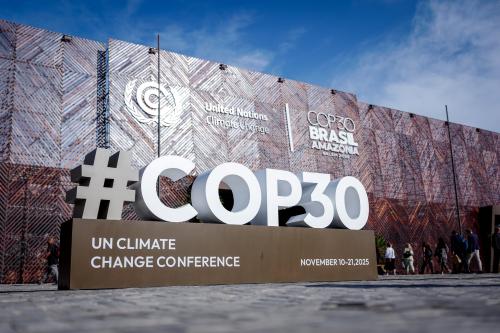On Tuesday, I wrote a blog post on “Typhoon Haiyan: Four Questions About This Super Storm and Major Humanitarian Disaster” and now a few days later and after much discussion on the comments section of the post, I want to revisit this issue.
To start, I wish I were in the Philippines right now, seeing firsthand what is happening and talking to people affected by the disaster and to those who are trying to help. But I’m not on the ground and so all of my comments are based on my experience in responding to many other disasters. Valerie Amos, the senior UN official responsible for disaster response, said yesterday the international response was too slow. This is a very sad commentary (but bravo to her for not hiding behind the obvious reasons for the slow arrival of aid). Personally, I find it terribly frustrating to read all these comments and not be able to give definitive answers about the specific Philippines context. I don’t know if corruption and looting are worse in the Haiyan/Yolanda response than is the norm in the Philippines. I do know that natural disasters often lead to sensationalist stories of chaos and looting that turn out later to be exaggerated.
I hope that this terrible tragedy leads to some serious soul-searching by the government of the Philippines and by the international community.
When a terrible disaster occurs, most immediately, people want to find their family members – this is often a more urgent need than food or shelter. By the second or third day, they need basic life-saving assistance to survive – they urgently need food, water and shelter. They also need to know that family members that have died in the tragedy will be buried in accord with their religion and traditions. When they don’t get information about their family members, when they don’t receive the basic assistance they need, people get angry. They deserve to be angry. I hope that this terrible tragedy leads to some serious soul-searching by the government of the Philippines and by the international community.
Re: the evacuations, I was initially encouraged to read of the government’s efforts to evacuate hundreds of thousands of people – and then very saddened to learn that some were evacuated to shelters that then flooded. Was this poor planning by the government – or the result of a much-stronger storm surge than anyone expected? I don’t know. Maybe we’ll get more information in the coming weeks with the inevitable post-mortems. But maybe all governments should take this as a wake-up call and plan for stronger storms and worse wildfires and more devastating droughts than has been the experience.
Also on the subject of evacuations, in most disasters, many people are reluctant to evacuate their homes, even when they know that dangerous hazards are coming, for fear of being robbed or losing their property. How far should governments go in forcing people to evacuate? On a personal note, I’m from south Texas where uncounted hundreds of people chose not to evacuate from Hurricane Ike in 2008. Every time I drive that stretch of road along the beach and see only sand where houses used to stand, I wish that people had left when the evacuation orders had been issued. I also wish that the police had been able to force people to evacuate when the deadly warnings were so clear. (By the way, I’m presently trying to develop some guidance to governments on how to protect the human rights of those being evacuated and would welcome comments on whether governments should forcibly evacuate those who don’t want to move, even when the danger signs are clear.)
Most of all as I read the news from the Philippines, I feel terribly sad – for the people affected by this terrible tragedy – the response (from all sides) should have been much quicker. Things are getting better, but at least in terms of immediate response, we failed.
The Brookings Institution is committed to quality, independence, and impact.
We are supported by a diverse array of funders. In line with our values and policies, each Brookings publication represents the sole views of its author(s).



Commentary
Failure of the Immediate Response to Typhoon Haiyan
November 15, 2013